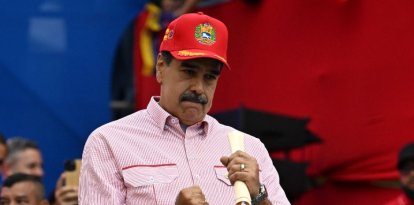EU Commission President Von der Leyen arrives in Uruguay to finalize a controversial trade agreement that France wants to avoid
The French parliament recently debated the Mercosur agreement and voted against it in an attempt to slow its progress.

Ursula von der Leyen, at the European Parliament.
Ursula von der Leyen, president of the European Commission, and Maroš Šefčovič, commissioner for trade, arrived on Thursday in Uruguay with the aim of concluding negotiations on the ambitious and controversial trade agreement between the European Union and the Mercosur bloc.
In a message posted on her social media, Von der Leyen expressed, "Touchdown in Latin America. The finish line of the EU-Mercosur agreement is in sight. Let’s work, let’s cross it." She further stressed that the pact seeks to connect a market of 700 million people, describing it as "the largest trade and investment partnership the world has ever seen."
Progress in Uruguay despite political tensions
After several years of negotiations, this trade agreement aims to strengthen relations between the EU and Mercosur, comprising Brazil, Argentina, Uruguay, Paraguay and Bolivia. However, the road to the Montevideo summit has been hindered by political tensions and internal criticism in Europe.
In France, opposition to the agreement has been forceful, motivated by concerns over its environmental impact and in key agricultural sectors. Last week, the French parliament voted against the agreement, reflecting a unified consensus in Paris to block its progress. However, the recent collapse of Michel Barnier's government left the country without a firm position in this process, clearing the way for negotiations to continue.
On the other hand, Germany has stepped up the pressure for the deal to be finalized. The Foreign Minister, Annalena Baerbock, has stressed the importance of the pact for consolidating the EU's economic competitiveness against other global powers. Berlin considers this agreement essential for the future of European trade in an increasingly competitive international context.
Implications for the EU
The confrontation between France and Germany highlights the internal tensions over the bloc's trade strategy. If the divisions between the EU's two main drivers deepen, they could challenge the European Commission's role as lead negotiator in international agreements and affect the cohesion of the single market, which encompasses 450 million people.
Von der Leyen now faces the challenge of balancing the demands of member states while trying to seal an agreement with Latin America. The summit in Uruguay will be decisive in determining whether this ambitious and controversial trade pact makes it across the finish line or faces further delays.

























